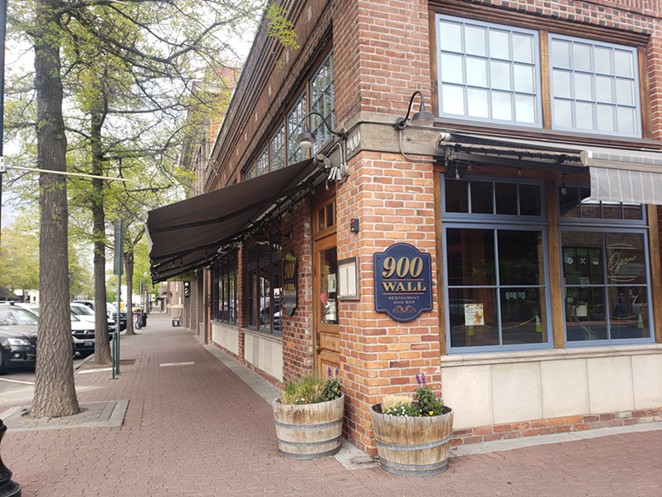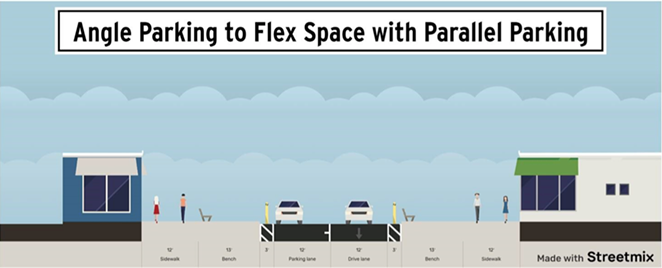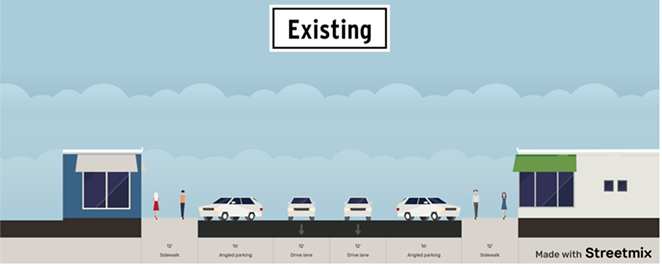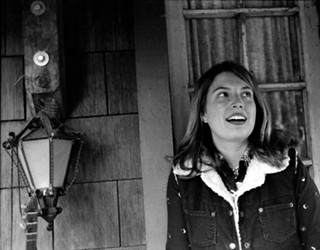
This week, the dream of bringing a car-free zone to Bend’s downtown core got a lot more in reach. A number of businesses encouraged the City of Bend to consider new emergency policies to help local restaurants and boutiques survive the coming months.
At the Bend City Council meeting Wednesday night, city staff and council members discussed allowing restaurants and retail locations expand tables and racks out into their private parking lots. Some businesses want to spread out on the sidewalk beyond their immediate storefronts, if their neighbors agree.
Perhaps the most controversial proposal was closing down NW Wall Street and NW Bond Street to cars for a few months to give businesses even more outdoor real estate. David Abbas, the city’s transportation and mobility director, presented a hybrid plan that would close off one lane of traffic downtown and still allow for some parallel parking. In addition, other areas of Bend, like NorthWest Crossing, may have their own proposals for sidewalk expansions and street closures.

Most councilors agreed to give City Manager Eric King permission—under the emergency declaration—to approve individual applications from businesses who want to branch out into their own parking lots and shared sidewalks.
However, council hesitated to turn downtown into a temporary pedestrian district. It's more likely a majority of councilors will eventually sign on to Abbas’ hybrid option—but getting consensus among business owners may prove an insurmountable hurdle.
Councilor Bill Moseley said blocking parking and traffic on major downtown corridors could be a risk for some businesses, like furniture stores. Councilor Barb Campbell, who owns the retail store Wabi Sabi, which recently moved out of downtown Bend, expressed concern that this kind of policy might favor some businesses over others.
Restaurants
Restaurants may be the clear winner in the street-closure scenario, but this is a relative term. Not only have many dining establishments been in the red for the last two months, now these owners must adhere to pages of strict reopening guidelines, while they try to lure back their staff who may be thriving financially with the extra $600/week in unemployment they're getting from the federal government. Further, just because these establishments are allowed have sit-down service doesn’t mean people will want to come inside.
“The conventional wisdom says that these restaurants are operating at 50% capacity,” said Ben Hemson, the City’s business advocate, at Wednesday’s meeting. “[But] I spoke with a sampling of local brew pubs… While some were approaching 50%—depending on their size and layout—many of them are more like at 20-30% capacity and that is just not really feasible to even break even, especially with limited hours and those sorts of issues.”
Gov. Kate Brown’s guidelines for restaurants and bars directs them to discontinue service at 10pm and keep 6 feet between parties.
After much discussion and debate, the Bend City Council voted 5-2 in favor of establishing a short-term program for the use of public streets and other public places to give businesses more room outside. Bend City staff are now empowered to work on it and gather data about what business are interested and what they want to do. Councilors Bill Moseley and Justin Livingston voted nay because they wanted to hear from businesses first.
“I realize timing is important, but I think it’s important to gather information about how businesses are impacted before moving forward so quickly,” Moseley said.
Will the whole thing die on the vine as it progresses through due process and bureaucratic hoops?
“My sense is that any expansion into the right-of-way on Bond/Wall would require the cooperation of a number of adjacent businesses to make it work,” Hemson told the Source in an email. “There’s a cluster on the north end of Bond that are in discussions about a proposal and another group around the Wall/Minnesota intersection with similar interest. There’s also a good push from businesses on Brooks and Tin Pan alleys for closures, at least in the late afternoon/evening hours when deliveries cease.”
Hemson said it is likely that a number of business will start expanding beyond their storefronts sooner than later. Closing streets? It could take a while.
“The challenges around getting the right equipment to ensure pedestrian, diner, and shopper safety—along with the need for some pretty significant buy-in from businesses—probably means the changes will happen incrementally,” Hemson said. “As initial projects show success I wouldn’t be surprised if it garnered more support for projects on those higher order streets.”
Both the Bend Chamber of Commerce and the Downtown Bend Business Association told the Source their organization’s support the council’s decision with caveats: different points of view must be taken into consideration before closing streets.























